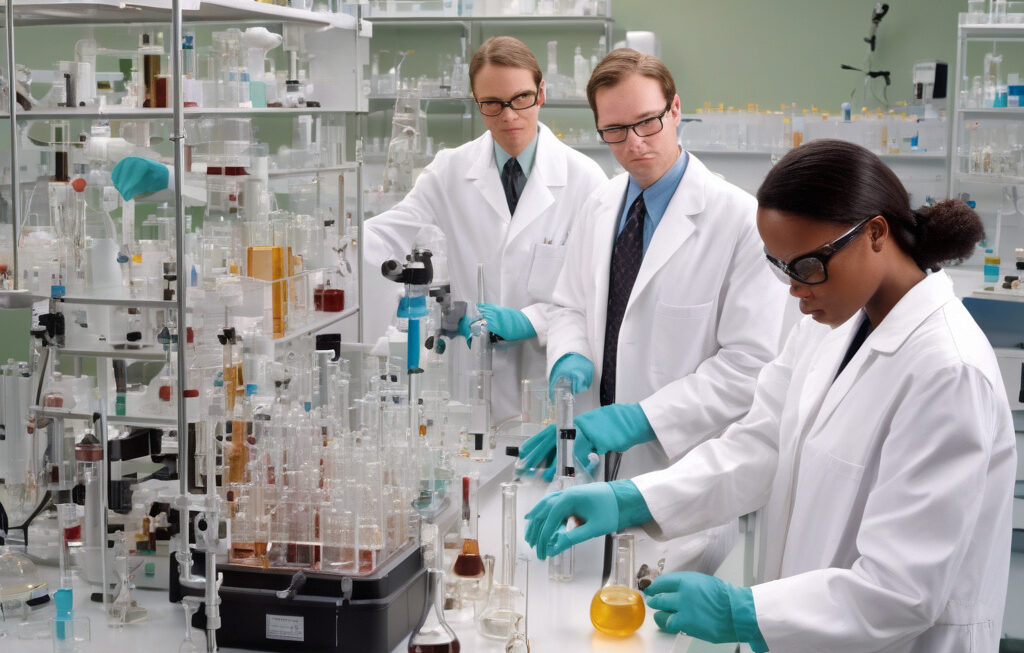Soundwave-using Recycling Tech Turns ‘Forever Chemicals’ into Renewable Resources
A new technique developed by U.K. researchers achieved a major milestone in fuel cell recycling, presenting a groundbreaking solution to tackle the pressing issue of “forever chemicals.” These chemicals, known as per- and polyfluoroalkyl substances (PFAS), are highly persistent in the environment and have been linked to numerous health risks. The innovative approach harnesses the power of soundwaves to break down PFAS compounds, transforming them into valuable and renewable resources.
Traditional methods of PFAS disposal have proven to be ineffective and environmentally damaging, as these chemicals do not easily degrade over time. This has led to widespread contamination of water sources and ecosystems, posing a significant threat to both human health and the environment. The development of a soundwave-based recycling technology offers a promising solution to this global challenge.
The process involves subjecting PFAS-containing materials to high-frequency soundwaves, which effectively break down the chemical bonds holding the compounds together. This results in the conversion of PFAS into harmless byproducts that can be safely reused or disposed of without causing harm to the environment. By utilizing soundwaves, researchers have found a sustainable way to eliminate PFAS contamination and extract valuable resources from these persistent chemicals.
One of the key advantages of this innovative recycling technology is its efficiency in breaking down PFAS compounds, which are notoriously resistant to conventional treatment methods. By harnessing the power of soundwaves, researchers have been able to achieve a high level of degradation for PFAS, paving the way for more effective remediation of contaminated sites. This breakthrough has the potential to revolutionize the way we approach PFAS pollution and offers new hope for restoring ecosystems impacted by these harmful chemicals.
In addition to its environmental benefits, the soundwave-based recycling technology also presents economic opportunities by turning PFAS waste into valuable resources. The byproducts generated during the breakdown process can be repurposed for various industrial applications, creating a closed-loop system that maximizes resource efficiency. This not only reduces the need for virgin materials but also minimizes the generation of harmful waste, aligning with the principles of a circular economy.
Furthermore, the scalability of this recycling technology makes it adaptable for widespread implementation across different industries and sectors. From water treatment facilities to electronic waste recycling plants, the potential applications of soundwave-based PFAS remediation are diverse and far-reaching. By integrating this innovative solution into existing waste management systems, companies can enhance their sustainability efforts and reduce their environmental footprint.
As we continue to face growing challenges related to pollution and resource depletion, innovative technologies like soundwave-based recycling offer a glimpse into a more sustainable future. By harnessing the power of soundwaves to transform “forever chemicals” into renewable resources, researchers are not only addressing a critical environmental issue but also unlocking new possibilities for resource recovery and waste management. The development of this groundbreaking technology marks a significant step forward in the ongoing quest for sustainable solutions to complex environmental problems.
In conclusion, the soundwave-using recycling tech developed by U.K. researchers represents a transformative approach to tackling PFAS contamination and promoting resource sustainability. Through the effective breakdown of PFAS compounds and the generation of valuable byproducts, this innovative technology offers a dual benefit of environmental remediation and resource recovery. By embracing such cutting-edge solutions, we can pave the way for a more sustainable and resilient future for generations to come.
soundwave, recycling technology, PFAS contamination, environmental sustainability, resource recovery












